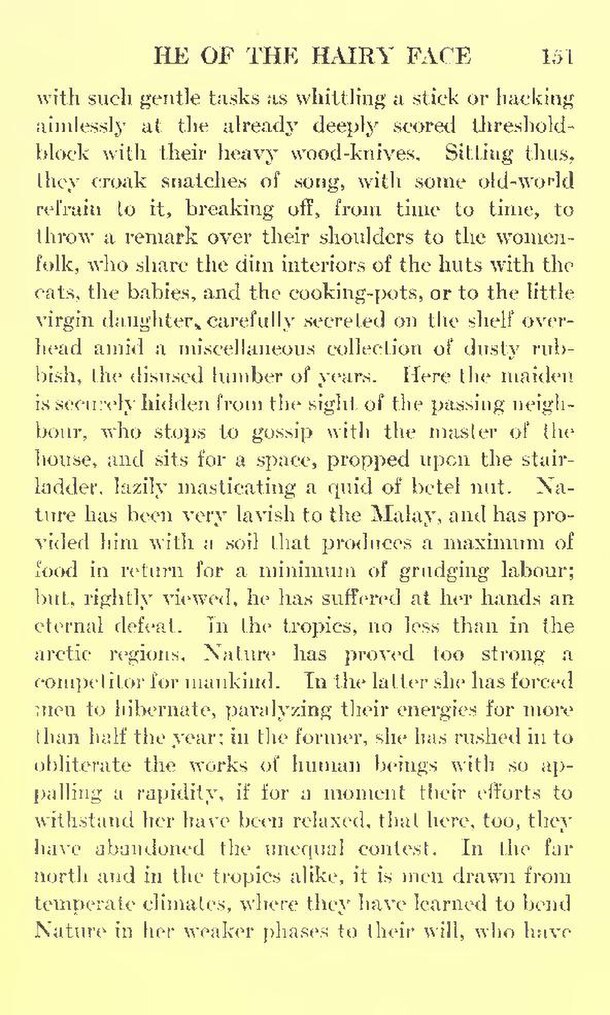with such gentle tasks as whittling a stick or hacking aimlessly at the already deeply scored threshold-block with their heavy wood-knives. Sitting thus, they croak snatches of song, with some old-world refrain to it, breaking off, from time to time, to throw a remark over their shoulders to the womenfolk, who share the dim interiors of the huts with the cats, the babies, and the cooking-pots, or to the little virgin daughter, carefully secreted on the shelf overhead amid a miscellaneous collection of dusty rubbish, the disused lumber of years. Here the maiden is securely hidden from the sight of the passing neighbour, who stops to gossip with the master of the house, and sits for a space, propped upon the stair-ladder. lazily masticating a quid of betel nut. Nature has been very lavish to the Malay, and has provided him with a soil that produces a maximum of food in return for a minimum of grudging labour; but, rightly viewed, he has suffered at her hands an eternal defeat. In the tropics, no less than in the arctic regions. Nature has proved too strong a competitor for mankind. In the latter she has forced men to hibernate, paralyzing their energies for more than half the year; in the former, she has rushed in to obliterate the works of human beings with so appalling a rapidity, if for a moment their efforts to withstand her have been relaxed, that here, too, they have abandoned the unequal contest. In the far north and in the tropics alike, it is men drawn from temperate climates, where they have learned to bend Nature in her weaker phases to their will, who have
Page:The further side of silence (IA furthersideofsil00clifiala).pdf/173
